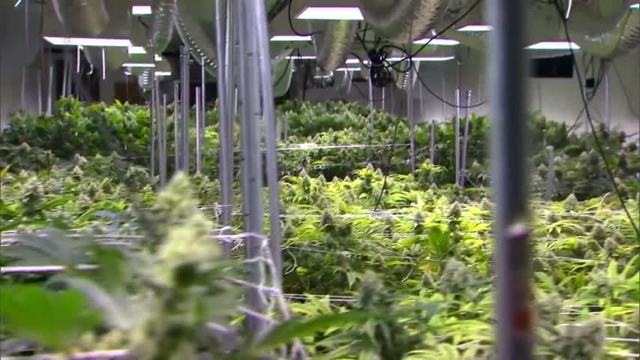day after the Pennsylvania Department of Health announced the first 12 winners of permits to grow medical marijuana under the developing state program, two members of Philadelphia City Council expressed disappointment that none of the city’s applicants had been awarded a grower-processor permit.
Councilmembers Derek Green and Bobby Henon issued statements on the state’s decision to hand permits to two Berks County applicants, Prime Wellness of PA and Franklin Labs, instead of any from Philadelphia or elsewhere in the medical marijuana program’s eight-county Southeast Region.
“We hope that the state will show more consideration to Philadelphia during the next round of decisions regarding these licenses,” Green said. “Considering that medical marijuana is projected to be a multi-billion dollar industry in Pennsylvania, Philadelphia should not have been left out of this initial opportunity to develop jobs and grow local and diverse companies.”
Two applicants in each of the program’s six regions were awarded permits on Tuesday. Of the 177 applications submitted by medical marijuana growers and processors, 31 came from the Southeast Region. The state’s initial plans call for a total of 25 growers, but there was no immediate timetable to award the next 13 marijuana grower-processor permits.
“Grower-processor facilities provide family-sustaining manufacturing jobs,” Henon said. “The decision of the Commonwealth not to authorize a single license opportunity in the City of Philadelphia demonstrates a serious lack of commitment by Harrisburg to provide opportunities to Philadelphia families and Philadelphia businesses. We have once again been left behind by state decision-makers.”
By the end June, the Department of Health will announce the initial 27 winners of the 50 total pot dispensary permits. Each permit holder will be authorized to operate three dispensaries. In the Southeast Region, 114 dispensary applications were submitted for review.Councilman Green led the charge to ease zoning restrictions for such dispensaries in Philadelphia, where the abundance of schools, daycare centers and recreational facilities was in conflict with a state law prohibiting dispensaries within 1,000 feet of any of these locations. Legislation introduced by Green last fall cut that restriction down to 500 feet in Philadelphia in order to ensure that patients have adequate access to fill their prescriptions.
Green said the state’s choice not to provide Philadelphia a pot grower-processor license was a missed opportunity.
“When you look at the Commonwealth, Philadelphia is the largest city,” Green told PhillyVoice. “We have the highest number of individuals who suffer from the 17 ailments covered under the medical marijuana program. From an economic standpoint, this would also give us the chance to address poverty in the city.”
The state indicated in December it plans to start with three medical marijuana dispensary permits in Philadelphia. Green said it was unclear how the city would fare when the anticipated announcement is made, but remained hopeful about both dispensary and grower permits, which he said have more to offer the city.
“It’s a different type of entrepreneurship opportunity,” Green said. “When you’re manufacturing product, you’re going to have a lot more employees. This industry is so new to Pennsylvania. We’re learning. There will be significant research opportunities. Considering Philadelphia and Pennsylvania’s long history in eds and meds, we can advance knowledge about marijuana.
The state’s medical marijuana program still remains on track to start serving patients by 2018, said John C. Collins, director of Pennsylvania’s Office of Medical Marijuana.
Green is optimistic that the program, once implemented, will have an immediate impact on public health.
“I think for both the city and the Commonwealth, when you look at the significant issues we see with opioid abuse and prescribing opioids for pain, when you look at possible reductions in federal funding for addiction treatment, having medical marijuana will provide another health benefit for our residents.”
credit:phillyvoice.com











